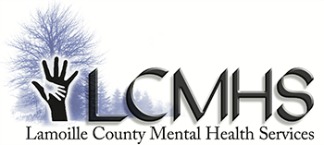A Student's Guide to Mental Health
Being a student is stressful, and according to the National Alliance on Mental Illness (NAMI), approximately one in five youth aged 13–18 live with mental health conditions and approximately 75 percent of people with mental health issues develop them prior to the age of 24. Mental health conditions can feel debilitating and scary, making some individuals retreat inward rather than seek help.
The Anxiety and Depression Association of America found that one in eight children are affected by anxiety, yet 80 percent of those with a diagnosable anxiety disorder do not receive treatment. This is a key part of the conversation that needs to be considered today. We need to change the idea that “something is shamefully wrong” when a child is suffering from anxiety, depression or other mental health issues, rather than being approached as a problem like any other ailment.
By going without counseling, medication, and other helpful tools for treating anxiety, children are likely to experience long–reaching issues. Anxiety disorders have been on the rise in K–12 children since at least the 1950s and studies show that numbers are expected to continue rising in the coming years. Awareness brings recognition and as we as a culture understand the effects of anxiety and depression, we can have better conversations, leading to better treatment.
Anxiety can be a normal part of childhood if experienced in phases, but students with continued symptoms often have a treatable anxiety disorder. Stress and anxiety can hinder academic success more than any other non-academic factors. It can lead to impaired concentration, poor judgment and memory issues. Depression, agitation, and the inability to relax can lead to a vicious cycle of procrastination and falling behind, which compounds the emotional or mental health issue.
For some students, things can become so out of control that they turn to self-medication with drugs and alcohol. Anxiety and stress may also manifest themselves physically, causing students to suffer from nausea, rapid heartbeat, dizziness, and chest pains.
Many children and teens cannot easily articulate emotional problems, or even simple feelings. Younger children will more likely say “My stomach hurts” rather than, “I am worried about the spelling bee tomorrow,” or other more serious emotional or family problems they may be experiencing. If you are a parent or a teacher and you are observing youth with any of these signs and symptoms, reach out to your local human services agency, or visit the Vermont Care Partners website- http://vermontcarepartners.org/agencies/ for more information. Help is never something to be ashamed of, and that is where the conversations need to begin.
New approaches to mental health are becoming prevalent across the State of Vermont such as Youth Mental Health First Aid, Zero Suicide Initiatives, and Seven Challenges drug and alcohol support services. Vermont Care Partners and the network of the 16 designated Mental Health agencies throughout Vermont are working hard to support youth and help our communities understand the far reaching effects that support services can have on children and teens. For more info and to find the designated mental health agency in your area, visit www.vermontcarepartners.org/agencies/
Youth today have many pressures from navigating social media to education and work responsibilities. Social media is a tricky world for youth to navigate and parents don’t always understand the dangers that can be hidden there. Social media is a place where all that is perfect about a person must be presented, while the uglier aspects of our lives remain hidden. Putting such pressure on perfection is an added stress for youth today that adults need to be aware of and able help our children understand the difference between life as presented though the screen and life as we live and experience it.
Limiting screen time to not more than two hours a day, and never unsupervised, is the safest way to keep youth and teens mentally healthy while navigating social media. Taking with your children about the ways to be safe online is also the best way to keep your children safe. For more information on how to do that, check out this article: https://www.psychologytoday.com/us/blog/artificial-maturity/201803/parent-s-guide-social-media-use-kids
A collaboration of the Vermont Care Partners’ statewide network of sixteen non-profit community-based agencies providing mental health, substance use, and intellectual and developmental disability services and support.
To Find an Agency Near you visit: https://vermontcarepartners.org/agencies/
Suicide Prevention Lifeline: 800-273-8255, www.suicidepreventionlifeline.org, Text VT to 741741
Vermont 211: Dial 2-1-1 anywhere in Vermont or visit www.Vermont211.org to get live referral help.



